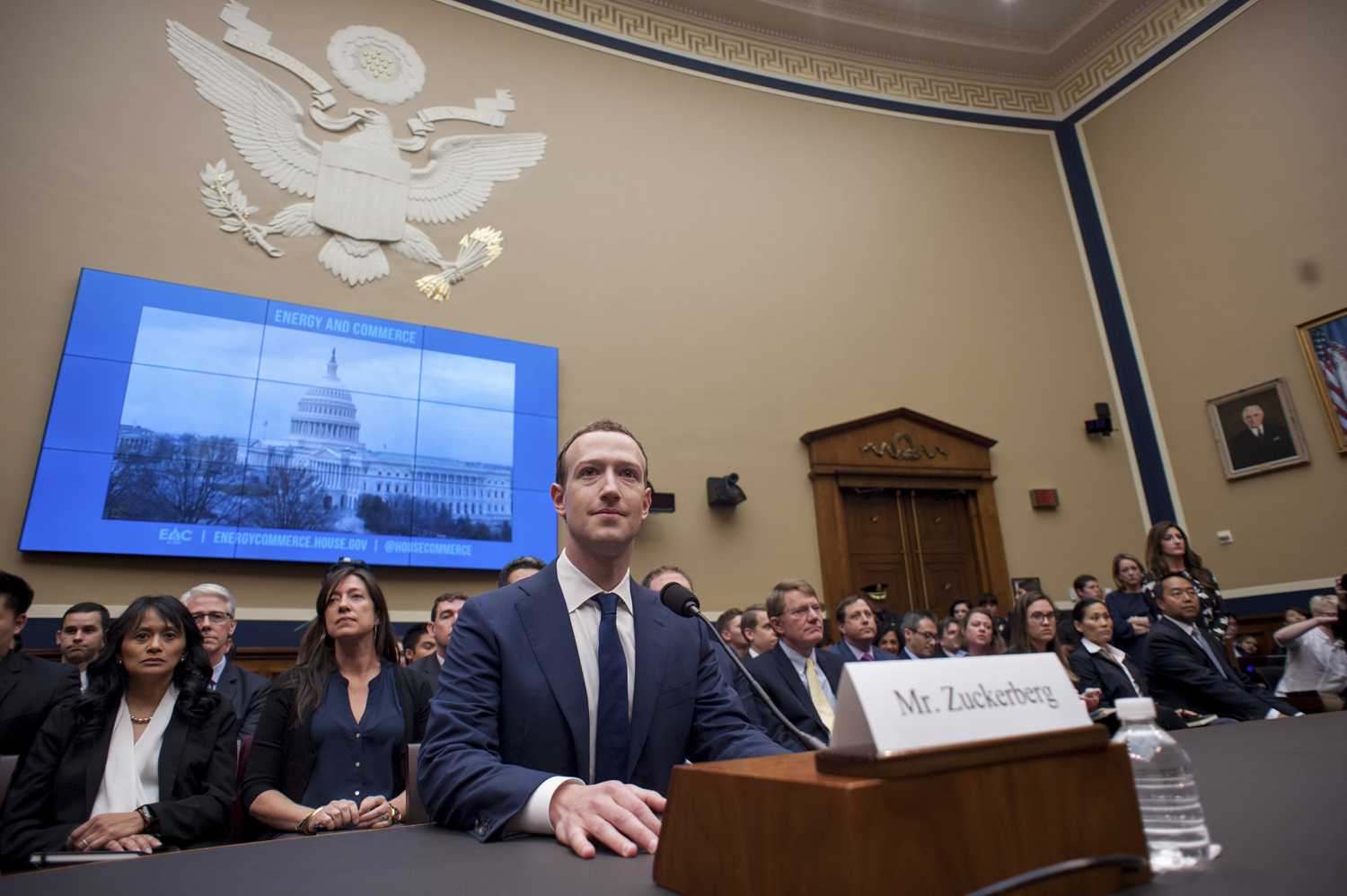Editorial | America has it all backward on censorship


Facebook CEO Mark Zuckerberg appears before the House Energy and Commerce Committee in Washington, D.C., on Wednesday, April 11, 2018. (Erin Scott/Zuma Press/TNS)
On the eve of TikTok’s imminent ban, many of us are wondering what social media app we’ll head to next. TikTok’s algorithms were special, allowing users to perfectly curate For You pages to their special interests. If you want to get sewing videos, you’ve got them. Video game clips — they’re there for you. Political content is at your disposal.
Our elected officials apparently believe that TikTok has the potential to “skew the perspective of American citizens.” They deemed it a national security threat, with the unwavering claim that the Chinese government has access to TikTok users’ personal data and that Chinese state propaganda could be used to turn the minds of users on the app. Despite a lack of direct evidence for these claims, there is proof that TikTok revolutionized the way many people receive news and has bolstered the economy in both direct and indirect ways.
A country founded on freedom that prides itself on being a leader in the matter has no business banning apps that serve as major forums where people find information and engage in discourse. It’s true that some people use the app to spread misinformation, but accurate information is also dispersed on the site. And unfortunately, it appears the ability to spread misinformation is being protected, while access to other information is slipping from our fingers day after day.
Meta — the largest competitor to TikTok, which lobbied for the app’s removal — announced on Jan. 7 that rather than utilizing fact-checking services to combat misinformation and remove hateful speech from their platforms, Meta’s popular sites Facebook and Instagram will now use a community notes system that Meta says will promote freedom of speech and expression. While this works from time to time, as can be seen on the platform X, formerly known as Twitter, it ultimately breeds misinformation, disinformation and cruelty, especially because Meta also killed all its diversity, equity and inclusion initiatives.
Fact-checking and removing hate speech aren’t censorship, and it should never be conflated as such. They does not infringe on the legal rights to freedom of speech and expression. Someone being removed from a private platform for espousing racist, homophobic or sexist rhetoric isn’t a form of censorship. Being ousted for blatantly lying and fearmongering isn’t a form of censorship. You have no inherent right to spread that type of speech. Companies hold the responsibility to prevent vitriol and misinformation from reaching the public when necessary.
You know what censorship is? Congress banning an application used by tens of millions of people across the country. You know what it is not? Companies removing hateful or harmful content.
This country has it totally backward on what needs to be corralled and what does not. Hate speech is out of control, and blatantly incorrect information is allowed to prosper following Mark Zuckerberg’s announcement. The real censorship occurring is going over far too many people’s heads, and the platform that would help many people realize this will likely be banned on Jan. 19.
Ignorance is a disease, and the American elite seems keen on spreading it further. Unfortunately, the same people are taking away what used to be a good place to discuss it.
The Pitt News editorial is a weekly article written by the opinions editors in collaboration with all other desk editors. It reflects the collective opinion of the current Pitt News editorial staff.
Recent Posts
Therese Pitman: Giving back to Pitt’s student-athletes with equality
Pitman is Pitt’s Director of Student Athlete Development where she helps student-athletes navigate their career…
Pitt speech and debate team heads to nationals
The William Pitt Debating Union, Pitt’s speech and debate team, sends students to both in-person…
Visuals: A Year in Review
The visuals desk had an interesting year. In the midst of the 2024 Presidential Election,…
De-stress events across campus offer students a break from studying
During finals week, departments across campus are offering wellness events to help students manage stress…
Pitt students share their summer plans
After a long and strenuous academic year, many students are excited to take a break.…
Column | Collaboration and connection make us better — yes, even in journalism
Today is the last day I will ever do this, and despite the amount of…

